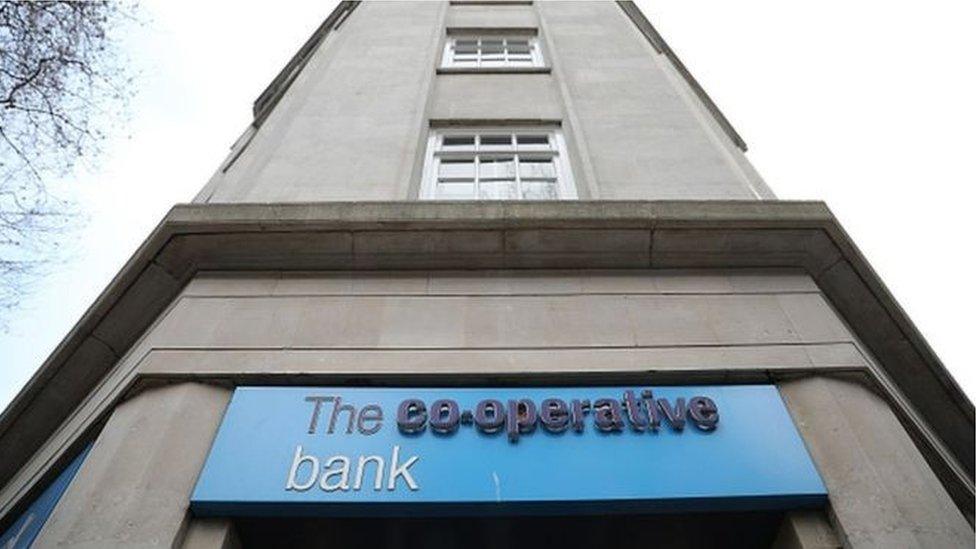Co-op Bank stands on brink of a new era
- Published
- comments

The Co-op Bank has been limping along for four years since an abortive attempt to buy 632 branches from Lloyds revealed a £1.5bn hole in its finances.
It was saved by a consortium of US hedge funds but has been unable to earn itself back to health since then.
After a prolonged search for a buyer of the bank failed, the existing owners have decided to double down.
They will write off £443m they are owed and inject £250m in new capital.
Co-op Bank has been under what the regulator calls "intense supervision" in recent months and today the Bank of England welcomed the announcement.
For customers, the changes will be subtle but important. The name, the branding and the ethical code of conduct will all stay.
But the relationship with the wider Co-op group - which runs supermarkets, travel agents and funeral services - will change.
Once a fully-owned part of the group, 2013's rescue saw Co-op group's stake fall to just 20% and today's announcement will see the group's share fall to just 1%.
A relationship agreement between the bank and the group - which includes marketing the bank services to Co-op members - will be terminated in 2020.
So far the bank's customers have proved loyal with nearly four million account holders and mortgage borrowers sticking with it, despite its recent financial difficulties and a sex and drug scandal involving its former chairman.
It will be interesting to see whether that loyalty continues as the bank and the Co-op Group part company after 145 years.